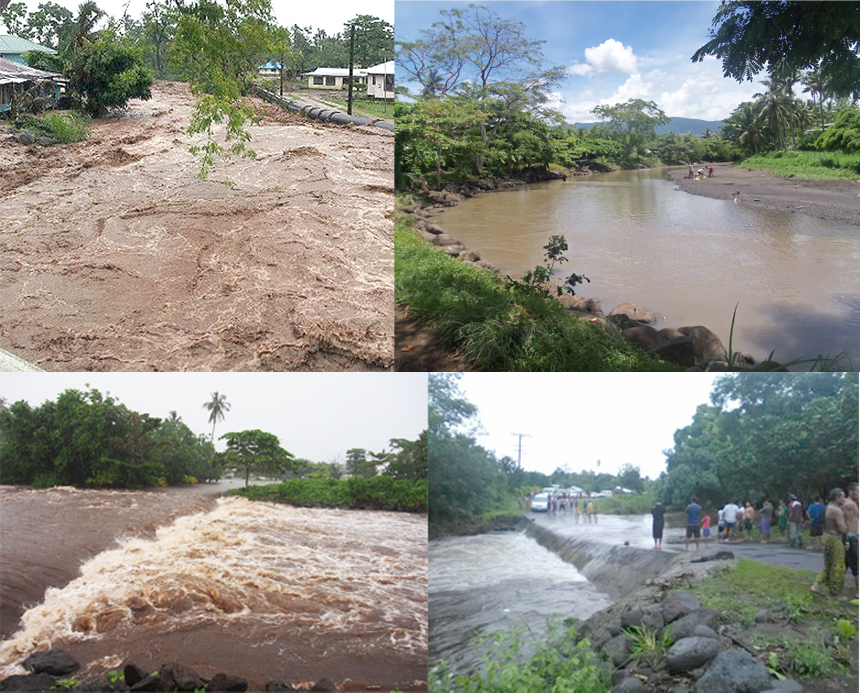By Mataeliga Pio Sioa
Must credit Patu Falefatu Sapolu for trying to make the Constitutional changes debate a little easier to grasp.
The retired Chief Justice made the analogy of parallel rivers flowing in the same direction.
Each serves a useful legal purpose. The choice of what river Samoa choses is up to Samoa.
If they want to go with the ‘pulega mamalu a ali’i ma faipule’ in favour of communal rights, lets flow down that river.
If the choice is individual rights imposed by ‘palagi’ law so be it.
Patu suggested that matters for the customs and traditions of Samoa are better served through the Lands and Titles Court.
The proposed Constitutional changes will legally empower the collective rights of the ‘pule mamalu a ali’i ma faipule’.
Rooms for appeal under the new Lands and Title Court system for judiciary review were noted. The process will also be shorter and easily affordable.
The criminal and civil courts pathway is not only long but outrageously expensive in his opinion.
This court system also favours the individual rights upheld by the Constitution.
Patu claimed this is the court system where the ‘pulega mamalu a ali’i ma faipule’ is always tko’d by the individual rights.
He referred to the case of the Matautu, Falelatai village versus bus owner Taliu.
The chiefs and orators had decreed that everyone in the village must go to church on Sunday including Taliu who protested his rights to run his buses.
The matter ended up in court and the village lost.
Patu highlighted this particular legal contest to underline the rights of the individual overruling the collective or the communal.
Big question? If the Constitution is to be amended for communal rights in the Lands and Titles Court to ensure equal status with individual rights, what about justice?
If Matautu, Falelatai rules that everyone in the village must attend church on Sunday is it fair on Taliu who wants to run his buses?
If the Christian belief is that Taliu will burn in hell for not going to church what has that got to do with the village?
Are they trying to save him by forcing him to go to church on Sunday? Good and noble intentions of course.
But what if the man does not share the same Christian beliefs of hell? What if he is not a Christian and does not believe in Jesus, Heaven or Hell?
Is it fair to punish him for his beliefs?
Hopefully, Patu or someone else will be able to smooth out this very rough spot before Parliament amends the Constitution.
The more one ponders this particular point the easier it is to understand and appreciate the struggles our forefathers went through during the Constitutional Convention.
Much easier now to envision the compromise to harmonize the competing human rights to ensure peace and harmony in Samoa guided by a Supreme Law.
Instead of one paramount chief as Head of State, Tupua Tamasese Meaole and Malietoa Tanumafili II were jointly appointed.
Mataafa Faumuina II was made Prime Minister. Members of Parliament were to be elected only by people with chiefly titles and that included women as well.
Only ‘matais’ were also eligible to vote.
Citizens of Samoa with no cultural ties or heritage like the Europeans, Chinese and others were granted voting rights for what became ‘Individual Voters Seat’ in Parliament.
This was the compromise between communal rights and the individual rights. It is now close to 6 decades since the ‘separate rivers’ alluded to by Patu have flowed.
Recently it ran through Parliament to re-emerge in harmony with the non-matai seats now merged into the matai only presence in the House.
This has followed the blessings of universal suffrage for 21-year-old non-titled citizens to vote.
Here again we have another harmonious compromise of these conflicting human rights.
Unfortunately for everyone involved in this raging Constitutions debate the emphasis is on who is right and what is wrong.
Again we reflect on the stress our forefathers went through with the New Zealand authorities as our political masters at the time, for a better independent Samoa.
The only difference is they sat down and tried to work out a pathway for these two human rights to work and benefit everyone.
The Constitutional debate we have now is between two antagonistic bullheads with horns locked in a tight clinch.
The dust is rising all around to blur any hopes of extracting a workable compromise other than a painful headlock.
The attention and the hopes must now turn towards the Parliamentary Select Committee when they table their findings in a report for the House to debate.
Will their findings allow the ‘parallel rivers’ to overflow into each other in glorious peace and harmony?
Our forefathers were successful in engineering a pathway that has ensured our wellbeing for more than half a century.
But that harmony is flowing through turbulence. How long will it last and how can we re-direct the flow so we are assured the stability we are proud to boast off to the world?
Maybe it is time we untangle those bullheaded horns and settle under the shade to ‘chew the cud.’
Surely there are more greener and sweeter pastures on the other side of the flowing rivers to graze on other than the bitter, dried up turf we are chomping on.
Food for Sunday thoughts.
